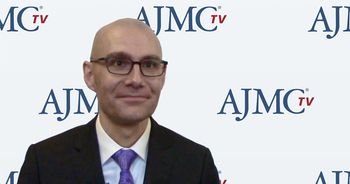
Value-Based Care
Latest News
Latest Videos

More News

Data published in JAMA Internal Medicine are the latest to sound the alarm on the emerging crisis in primary care.

The Institute for Accountable Care has a massive database to understand which accountable care organizations (ACOs) are successful and why, as well as how best to implement accountable care programs, explained Rob Mechanic, MBA, senior fellow at the Heller School of Social Policy and Management at Brandeis University and executive director of the Institute for Accountable Care.

Physician-level medication adherence is a strong predictor of patient health and should be considered as a measure of physician quality.

As CMS prepares to implement its new Pathways to Success program (formerly Medicare Shared Savings Program) for accountable care organizations (ACOs), some ACOs may consider Medicare Advantage a more beneficial arrangement, explained Kim Kauffman, MPH, vice president of value-based care at Summit Medical Group.

Cost-benefit analysis for quality measures has emerged as the cornerstone of CMS’ Meaningful Measures initiative.

While not every doctor is successful in value-based contracts, there is a shift in the right direction to more value-based care, explained Scott Hewitt, vice president, payment strategy and innovation, UnitedHealthcare.

Compared with other payment models, like bundled payments or the Comprehensive Primary Care Program, accountable care organizations (ACOs) have done a better job of saving money, said Rob Mechanic, MBA, senior fellow at the Heller School of Social Policy and Management at Brandeis University and executive director of the Institute for Accountable Care.

A targeted effort to make hospital cesarean delivery rates transparent and understood by women increased their awareness of this important quality measure, but did not drive them to choose hospitals with lower rates, according to a new study in The American Journal of Managed Care®.

Medicare Advantage (MA) provides accountable care organizations (ACOs) with benefits that aren’t available in Medicare’s ACO program, explained Kim Kauffman, MPH, vice president of value-based care at Summit Medical Group.

Coverage of our peer-reviewed research and news reporting in the healthcare and mainstream press.


With a number of difference payment programs being tested, it’s important to have a sophisticated evaluation of these programs to really understand their impact on quality and cost, said Allison Brennan, MPP, senior vice president of government affairs for the National Association of ACOs.

In 2018, articles in The American Journal of Accountable Care® (AJAC) analyzed experiences within accountable care organizations (ACOs), the cost-effectiveness of initiatives to prevent readmissions, and much more. Here are the top 5 most-read articles published in AJAC in 2018.

There are additional areas of improvement for Medicare accountable care organizations (ACOs) beyond what was proposed in the Pathways to Success regulation, said Allison Brennan, MPP, senior vice president of government affairs for the National Association of ACOs (NAACOS).

CMS has finalized “Pathways to Success,” its overhaul of the Medicare Shared Savings Program (MSSP) that will push accountable care organizations to assume risk more quickly. The final rule includes some changes to the proposed rule, which was introduced in August.

Many hospitals penalized for readmissions were given readmission grades of “no different” or “better” than the national rate on the Hospital Compare website.


Disparities in care are a complex issue requiring multiple strategies to solve, including approaches to improve the measurement of quality and reporting stratified performance estimates.


The results of the study demonstrate the potential of provider-led health plans to deliver high-quality care and patient satisfaction. The relationships between these plans and outcomes differed by plan size, nonprofit status, and region.

Pushing accountable care organizations (ACOs) to take on risk faster will likely result in ACOs that aren’t ready just dropping out of the program and could impact participation in value-based care, said Allison Brennan, MPP, senior vice president of government affairs for the National Association of ACOs.

Centralized reminder/recall (R/R) is less costly to deliver than decentralized R/R for both children and adolescents when implemented for patients within an accountable care organization.

Publicly reported Medicare Shared Savings Program accountable care organization (ACO) data can be analyzed to identify cost and medication-related quality performance improvement opportunities to support pharmacist integration into ACO population health services.

The proposed changes to the Medicare Shared Savings Program may put a damper on the accountable care organization (ACO) movement, but ACOs remain the government’s best option for controlling healthcare costs, said Stephen Nuckolls, CEO of Coastal Carolina Quality Care.

There are some proposed changes to the Medicare Shared Savings Program (MSSP) that may be favorably or not depending on the accountable care organization (ACO) and its situation, said Allison Brennan, MPP, senior vice president of government affairs for the National Association of ACOs.













